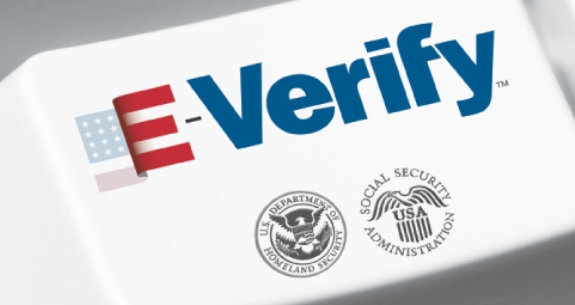 As the national debate over E-Verify continues to heat up, some members of Congress seem intent on pushing for mass deportation strategies without taking into account the harm they will cause for American businesses and workers, and without acknowledging that making E-Verify mandatory will not resolve any underlying problems.
As the national debate over E-Verify continues to heat up, some members of Congress seem intent on pushing for mass deportation strategies without taking into account the harm they will cause for American businesses and workers, and without acknowledging that making E-Verify mandatory will not resolve any underlying problems.
House Judiciary Committee Chair Rep. Lamar Smith intends to introduce legislation in the next few weeks that will make E-Verify—the electronic verification program which allows employers to attempt to verify the work authorization of newly hired employees—mandatory for all employers across the U.S. Smith has been using a recent Supreme Court decision as a reason to expand E-Verify.
Arizona was the first state to make E-Verify mandatory for all businesses in the state. That law was challenged on grounds that it conflicted with federal law, and the case eventually went to the Supreme Court. Recently, the Supreme Court ruled that Arizona’s law was not preempted by federal law, and mandatory E-Verify could move forward. This will no doubt encourage additional states to make the system mandatory. E-Verify is largely voluntary program at present. Federal contractors, however, must use it, and at least fourteen states have made it mandatory for all or some of state businesses.
It’s important to remember, however, that the Supreme Court decision did not make mandatory E-Verify a good idea. In fact, Arizona has experience problems since passing their law; workers are moving underground, tax revenues are down, American workers are losing their jobs, and small businesses pay the price.
The federal government itself admitted that E-Verify cannot detect all unauthorized workers. Errors and employer misuse of E-Verify mean that tens of thousands of U.S. citizens and legal workers could be denied their jobs and their paychecks. And it would mean less tax revenue for U.S. coffers as immigrant workers move to the underground economy.
As mandatory E-Verify has come up in state legislators, business groups—particularly the agricultural industry—have opposed the measures. Few American workers take agricultural jobs, and growers complain that the H-2A visa program for agricultural workers is complex and not well suited to their needs. As a result, experts believe as many as three-fourths of the country’s agricultural workers are unauthorized workers. Growers fear that mandatory E-Verify—if implemented without a legalization program or a reformed H-2A program—could bring the U.S. agricultural industry to its knees.
Small business is also rightly concerned about mandatory E-Verify because it would impose new regulations on them at a time when they are already struggling. According to Bloomberg News Service, making E-Verify mandatory would cost $2.7 billion a year. The biggest burden would be on small businesses (those with less than 500 workers), which account for 99.7% of employers. Small businesses would have to pay $2.6 billion a year.
Thus, it appears that advocates are going to expend much time and energy fighting yet another enforcement-only program that—absent legalization and other reforms—does nothing to fix our broken immigration system but has extremely negative consequences for law abiding employers and U.S. workers.
Photo by USCIS.gov.


